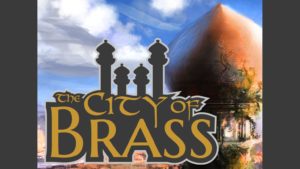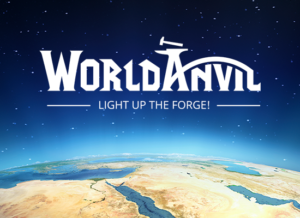
This article begins my attempt to share some useful tools I’ve discovered for online gaming. This first entry takes a look at most of the most popular campaign managers out there.
Online tabletop gaming has been an incredible boon for the hobby. Once confined to you and a few friends in your mom’s basement, now gamers can play games with individuals from all corners of the globe at once. Not only has this led to a renaissance in the RPG industry, but it has also increased participation in the hobby to an extent never before imagined possible. Gamers can communicate with voice and video, move digital minis across digital grid-maps, and do pretty much anything else that they might otherwise have done were they gaming in person.
This explosion of online gaming has led to the development of new platforms and tools for facilitating online play. New options arise every day, and it can be overwhelming to sort through and choose between them all. For this reason, I’d like to try to help my fellow gamers choose the tools they need in order to maximize their online gaming potential. I think the place to start is with a look at some of today’s most popular online campaign managers. As a disclaimer, I’ll only be including campaign managers that meet three main criteria:
- Must already be available to the public (nothing solely in beta or Kickstarter)
- Must have RPG-specific functions (no general-purpose applications like OneNote)
- Must have a free plan option (no premium-only platforms)
With that out of the way, let’s take a look at some of our options.
 Obsidian Portal
Obsidian Portal
Plans: Basic ($0) / Ascendant ($6.99/month or $49.99/year)
Major Features: Wiki, Forum*, Calendar*, Dice Roller*
Pros: Simple, Popular, Customizable
Cons: Many features are behind paywalls
Best For: Gamers who just want the basics and prefer a blank slate
First up is Obsidian Portal (OP), which is probably the most well-known and popular campaign manager. OP was one of the first major campaign managers on the market, and as such it has one of the largest market shares. The main feature of OP is its wiki, which allows you to create pages and entries for various characters, items, and locations. The wiki allows integrated links between pages, but otherwise is pretty bare-bones and may require some knowledge of HTML in order to get the most out of it. Some other useful features include a group forum for campaign discussions, a calendar for scheduling sessions, and a Dice Roller tool if you don’t want to bother with physical dice. However, those features all require you to sign up for their premium “Ascendant” plan, which could be a problem for gamers on a budget; it’s a bitcbit disappointing considering that many other campaign managers out there can do more for free.
You can check out a sample campaign page from Obsidian Portal here.

Scabard
Plans: Basic/Player ($0) / Basic Unlocked ($3.95/month or $33.95/year) / Hero Subscription ($5.95/month or $49.99/year)
Major Features: Wiki Templates, Auto-linking, Graph viewer, Character Sheets
Pros: Clean interface, Easy-to-use wiki templates, Reasonable prices for premium
Cons: Basically just a fancy wiki
Best For: Gamers who want something simple and user-friendly
Scabard is in many respects similar to Obsidian Portal; both primarily use a wiki-style format and aren’t overflowing with features. However, Scabard’s three main advantages over OP are its clean interface, its use of fillable templates rather than blank pages, and its reasonable prices. Most users will probably find Scabard a bit easier to use and navigate. The templates include things like Character pages, Item pages, and Event pages, each with category-specific fields that make it quick and easy to fill in all the relevant info. And whereas OP charges money for some of its most basic features, Scabard provides these and more for free, and offers some premium options at a better price-point.
The Scabard website includes demo videos, and a sample campaign page.
 City of Brass
City of Brass
Plans: Free ($0) / Premium ($5/month)
Major Features: World/Story/Entity Builders, Rules Compendium
Pros: Almost all features available with free account
Cons: Rules compendium is limited
Best For: Single-campaign gamers who want a good bang for their buck
If you’re talking about good price-points, City of Brass takes the cake. This campaign manager offers pretty much all of their features for free for a single campaign. If you want to be able to manage more than one campaign and setting, you’ll have to go for their premium option. But fear not – at $5/month, it’s one of the best deals out there! Like Scabard, it has templates to help you easily create entries for your characters, items, locations, spells, and more. Moreover, if you happen to play one of their supported game system (Including 5e, Pathfinder, and Fate), you’ll have access to a nifty (albeit limited) rules compendium.
Check out an introduction video here.
 World Anvil
World Anvil
Plans: Freeman ($0) / Journeyman ($40/year) / Master ($58/year) / Grandmaster ($105/year) / Sage ($300/year)
Major Features: World/Character/Story/Entity Builder,
Pros: Tons of tutorials/documentation, diverse selection of support systems, visually stunning, lots of features
Cons: Higher-tier premium plans are expensive
Best For: Gamers that want to cover all aspects of campaign worldbuilding
World Anvil offers a truly premium experience for those gaming groups that want their campaign manager to look impressive. It has templates for all sorts of different types of world-building elements, support for maps, timelines, and charts, and a lot more. It looks absolutely beautiful. Most features are free, but you can purchase premium tiers if you want more storage space or want to allow large numbers of people to participate or collaborate on the campaign with you. They even have a Sage tier that allows you to monetize your campaign with Patreon integration and similar features, but I don’t imagine most users will have use for it – especially not for $300/year. Another neat thing is that World Anvil publishes a lot of videos covering World Anvil tutorials as well worldbuilding advice. Longtime d20 Radio fans will probably be happy to hear that World Anvil supports both FFG Star Wars and Genesys right out of the box!
Take a look at an extensive overview video here.
 Chronica
Chronica
Plans: Peasant ($0) / Squire ($36/year) / Knight ($5/month or $55/year) / Monarch ($8/month or $88/year) / Deity ($20/month or $220/year)
Major Features: Regional Maps, Quest Log, Adventure Journal, Shop/Kingdom Builder
Pros: Lots of unique features, user-friendly interface
Cons: Requires some tweaking if you’re using it for something other than d20
Best For: Gamers who want the kitchen sink
Full disclosure, Chronica is my current favorite campaign manager, and I’ve been using it for my West Marches campaign for a few months now. The interface is stylish and user-friendly. There are also a lot of unique features to be excited about: maps with individual entries for each square/hex; quest logs to keep track of all the little details; adventure journals that players can use for personal notes and/or sharing their account of a session; an encounter planner that lets you integrate other entries from the campaign; campaign shops players can use to buy and sell inventory; and a kingdom builder that lets you design your own towns and strongholds. Admittedly, many of these features might not be necessary for the average GM/campaign, but Chronica takes a “you want it, you got it” approach to campaign management. The features are almost all available with a free plan, but if you want more storage or have more than a handful of players (my West Marches campaign has nearly 40 right now), you’ll need to upgrade.
You can see an in-depth look at Chronica’s features here.
* = Premium Feature
Is there a campaign manager you like that wasn’t included on this list? Do you have thoughts or questions about the article or suggestions for future content? Leave a comment below or drop me a line at jtdimino@d20radio.com
